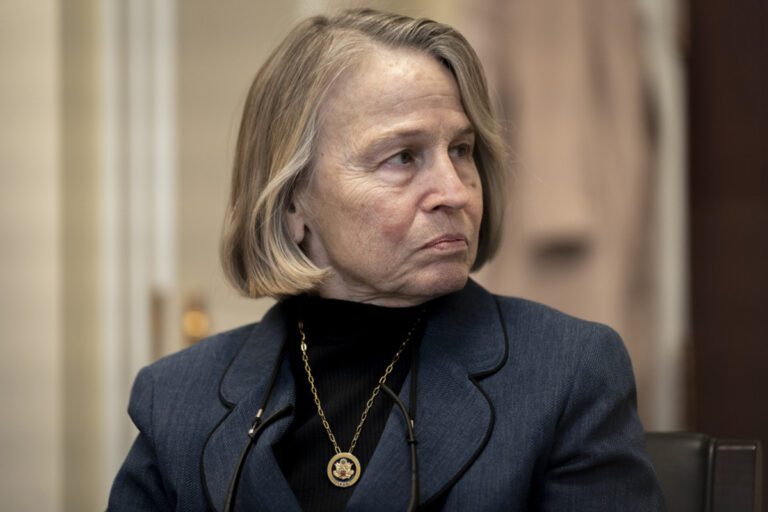🎧 Listen to This Article
WASHINGTON – A group of House Republicans is pushing to preserve key clean energy tax credits in the upcoming tax package despite strong opposition from conservative hard-liners. The move is a strategic effort to maintain the benefits for renewable energy projects in Republican-leaning districts, especially those that gained traction through the Democrats’ 2022 climate legislation.
A Conservative Push for Clean Energy Tax Breaks
House Republicans are preparing to make significant changes to the tax code as part of a broader legislative package that aims to cut taxes, tighten border security, and shift U.S. energy policy. As part of these talks, key Republicans have appealed directly to House Ways and Means Chair Jason Smith (R-Mo.) to protect clean energy tax credits for wind, solar, and carbon-reduction projects created by the Biden administration’s 2022 climate law.
The Republican-led effort underscores the political complexity surrounding clean energy incentives. Some Republicans, including House Conservative Climate Caucus Chair Mariannette Miller-Meeks (R-Iowa) and Rep. Andrew Garbarino (R-N.Y.), argue that clean energy tax credits should remain intact, particularly those benefiting red states and districts where wind and solar projects have been economic boons.
“We want to make sure that these credits are not completely eliminated,” Garbarino said, referencing the multiple colleagues supporting the idea. “It’s important to have a discussion with the committee on how to approach this.”
Navigating a Split GOP on Clean Energy
The clean energy tax credits, which were a core part of the Biden administration’s climate agenda, have become a point of contention within the Republican Party. While conservative hard-liners call for a rollback of climate-related policies, others in the party see these credits as crucial to job creation and energy independence, particularly in states like Iowa and New York where wind and solar projects have flourished.
The preservation of these credits would signal a significant shift in GOP priorities, especially if it allows for bipartisan support in districts where clean energy initiatives are seen as economic drivers. On the other hand, scrapping these incentives could significantly hinder the growth of renewable energy businesses and reduce U.S. competitiveness in global green technologies.
Experts estimate that the wind and solar industries have already created hundreds of thousands of jobs across red states, with more on the horizon as renewable energy projects continue to expand. Keeping these incentives could help solidify support for the GOP in these districts, especially as energy security and job creation remain central to Republican messaging.
Bridging the GOP Divide
Rep. Miller-Meeks, a key advocate for clean energy tax credit preservation, emphasized the need for a “balanced approach” during her meeting with Rep. Smith. “We need to thread the needle carefully when evaluating which credits to keep and which ones to scrap,” she noted, signaling a desire to ensure that the GOP maintains a pro-business stance while also addressing the concerns of fiscal conservatives.
Rep. Garbarino echoed this sentiment, suggesting that the GOP must navigate these divisions to come to a consensus. “We’re looking forward to discussing our thoughts with the committee,” Garbarino said. “There’s absolutely more than 21 Republicans supporting the idea, so this is a priority for us.”
The battle lines are drawn within the Republican Party, with fiscal hawks advocating for deep cuts to Biden-era programs and conservative members pushing for targeted protection of clean energy credits. At stake is the future of U.S. energy policy, with the GOP divided over the role of government incentives in shaping a green economy.
- Key Meetings and Negotiations: Watch for further discussions between Smith and Republican leaders like Garbarino and Miller-Meeks to determine which credits will survive the budget wrangling.
- Impact on Final Tax Package: Will clean energy tax credits remain a point of contention, or will a compromise be reached to maintain support from both conservatives and moderates?
- Potential Compromise: How will the GOP balance the fiscal imperative of spending cuts with the economic and political value of maintaining clean energy incentives?
- Broader Energy Policy: The outcome of these talks will have ripple effects on U.S. energy policy, potentially shaping the trajectory of the renewable energy sector for years to come.
“The clean energy credits are helping drive job growth in areas that Republicans care about,” said a senior Republican aide familiar with the negotiations. “We’re hoping to preserve them without upsetting the larger fiscal goals of the package.”
Energy industry experts are watching closely. “The economic importance of these incentives, especially in red states, can’t be overstated,” said Dr. Julia Sparks, a senior energy policy analyst at the Center for American Progress. “A rollback would harm local economies that rely on wind and solar development.”
For further details, clarification, contributions, or any concerns regarding this article, please contact us at editorial@tax.news. We value your feedback and are committed to providing accurate and timely information. Please note that our privacy policy will handle all inquiries



